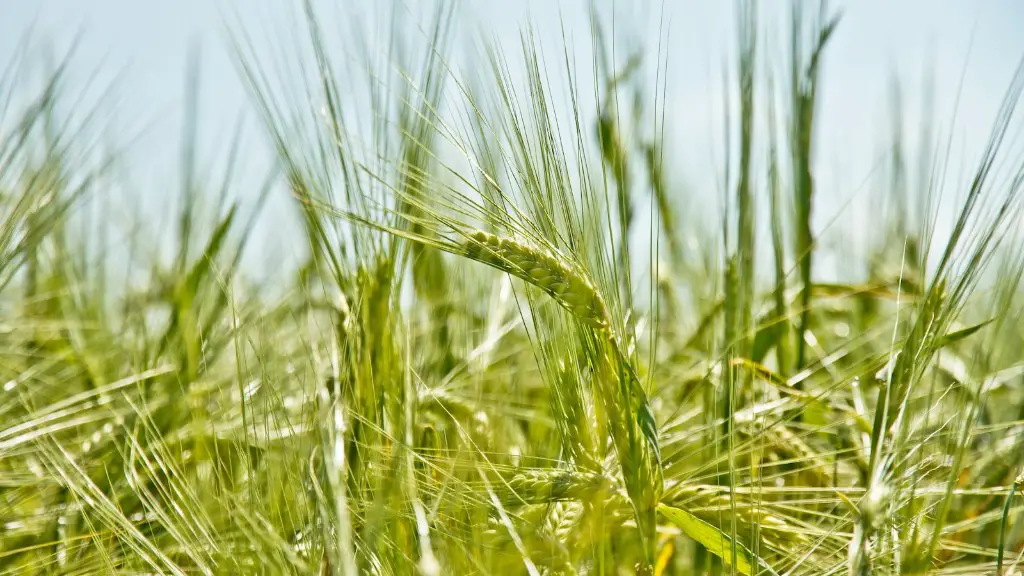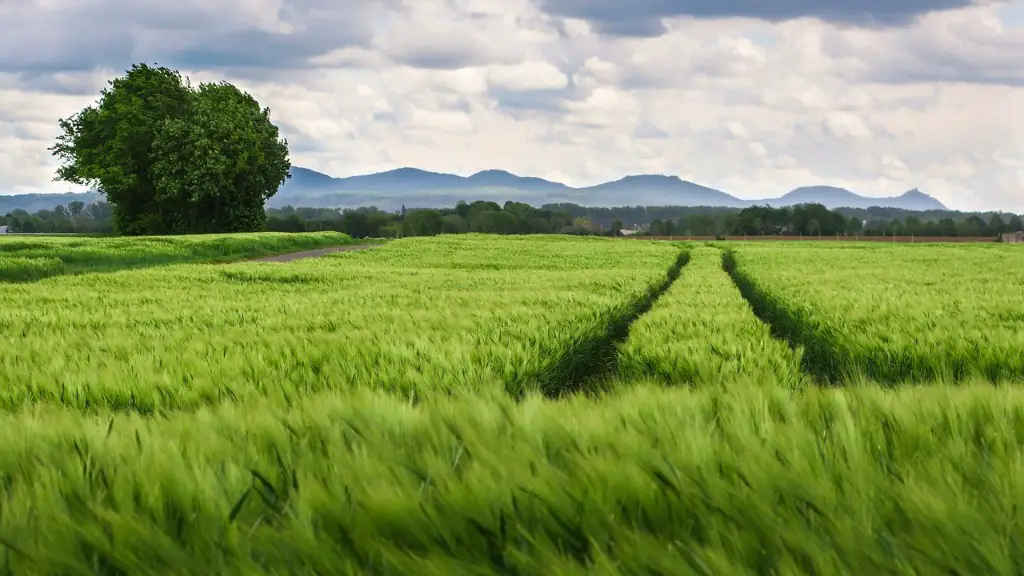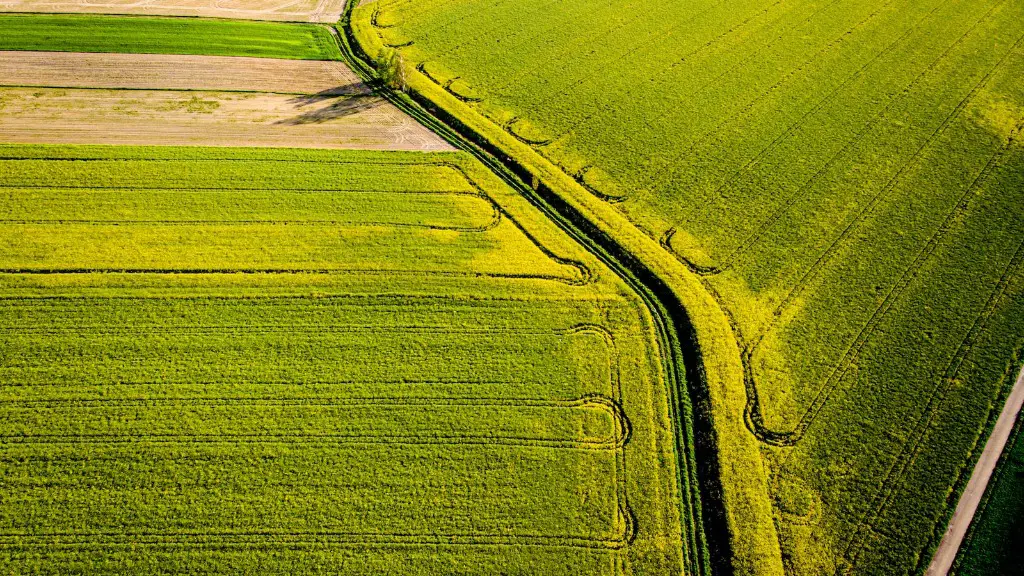There are many different types of careers in agriculture. Here are 10 of them:
1. Agricultural Engineer
2. Agricultural Extension Agent
3. Agricultural Researcher
4. Agricultural Teacher
5. Agricultural Technician
6. Agricultural Economist
7. Agronomist
8. Soil Conservationist
9. Farm Manager
10. Food Scientist
1) Agriculture Teacher
2) Agricultural Engineer
3) Agricultural Equipment Operator
4) Agricultural Farm Manager
5) Agricultural Inspection Agent
6) Agricultural Inspector
7) Agricultural Loan Officer
8) Agricultural Merchandiser
9) Agricultural Photographer
10) Soil and Water Conservationist
What is the best career in agriculture?
There are many careers in agriculture that are important for the industry. Agricultural engineers work on designing and improving agricultural equipment. Agricultural economists work on issues relating to the economics of agriculture. Farm managers are responsible for the management of farms. Soil and plant scientists conduct research on soil and plants. Conservation planners work on developing plans to conserve natural resources. Commercial horticulturalists grow and sell plants. Agricultural salespeople sell agricultural products.
There are a few different types of jobs in agriculture that are known to be high paying. These jobs include an agricultural engineer, an agronomist, an agricultural food scientist, a veterinarian, a winemaker, and a farm manager. Agricultural sales representatives are also known to make a decent salary. Each of these jobs involves different responsibilities, but all are important in the agricultural industry.
What are the 9 agriculture career focus areas
The agricultural industry offers many exciting career opportunities in a variety of different areas. Whether you’re interested in agribusiness, agricultural education, animal systems, biotechnology, environmental services, food processing, natural resources, plant systems, or power and structural engineering, there’s a place for you in the agricultural industry. With so many options to choose from, you’re sure to find a career that’s a perfect fit for your skills and interests.
The agricultural industry employs a wide range of workers, from farmhands and growers to warehouse managers and sales representatives. With such a diverse range of jobs available, there is sure to be a role to suit everyone in the agricultural industry.
Farm workers are responsible for the day-to-day running of the farm, from planting and harvesting the crops to caring for the animals. Growers are responsible for overseeing the growth of the crops and ensuring that they are healthy and of a high quality. Grain elevator operators are responsible for moving the grain around the warehouse and loading it onto vehicles for transport.
Agricultural equipment technicians are responsible for maintaining and repairing the agricultural equipment used on the farm. Purchasing agents are responsible for sourcing and purchasing the supplies and equipment needed for the farm. Warehouse managers are responsible for supervising the staff and managing the operations of the warehouse.
Agriculture specialists are responsible for providing advice and support to farmers and other agricultural businesses. Sales representatives are responsible for promoting and selling the products produced by the agricultural industry.
What are 5 career opportunities in agriculture?
There are many different career opportunities available in the field of agriculture. Agricultural extension workers help farmers to adopt new technologies and improve their production practices. Agricultural engineers develop new technologies to improve agricultural productivity. Animal scientists conduct research on animal nutrition, physiology and genetics. Agricultural economists conduct economic research on agricultural policy issues. Crop scientists conduct research on the genetics, physiology and management of crops. Soil scientists conduct research on the properties and management of soils. Forestry scientists conduct research on the biology and management of forests. Horticulturists conduct research on the cultivation of fruits, vegetables and ornamentals.
The agricultural industry is projected to grow significantly in the coming years, with many new job opportunities becoming available. Here are 10 of the fastest growing jobs in this field:
1. Animal Caretakers: With the increasing popularity of pet ownership, the demand for animal caretakers is expected to grow 1647%.
2. Pest Control Workers: As the world becomes more concerned with environmental issues, the demand for pest control workers is expected to grow 802%.
3. Refuse and Recyclable Material Collectors: With the increasing focus on recycling and reducing waste, the demand for refuse and recyclable material collectors is expected to grow 718%.
4. Agricultural Equipment Operators: With the increasing mechanization of agriculture, the demand for agricultural equipment operators is expected to grow 662%.
5. Soil and Plant Scientists: With the increasing focus on sustainable agriculture, the demand for soil and plant scientists is expected to grow 533%.
6. Agricultural and Food Scientists: With the increasing demand for new and innovative food products, the demand for agricultural and food scientists is expected to grow 467%.
7. Agricultural Inspectors: With the increasing globalization of the food supply, the demand for agricultural
What is easiest farming to make money?
Livestock is a common way for farmers to make money from their land. Animals have a few more expenses and a higher overhead than crops, but they usually bring in more money in terms of net income.
There are many possible career paths in agriculture. A few examples include: agricultural production manager, winemaker, cellar manager, agricultural extension officer, and agritourism. each of these careers involves different aspects of the agricultural industry, from production and management to research and education.
Is it hard to study agriculture
BSc Agriculture is not a tough course as it is believed to be. It is a course that teaches about the science and art of producing crops and raising livestock. The course also covers topics such as farm management, soil science, and animal husbandry.
Farms come in all shapes and sizes, and there are many different types of farms out there. Here are 15 different types of farms:
1. Aquaculture Farming: This type of farming involves raising fish, crustaceans, and other aquatic animals in tanks or ponds.
2. Cooperative Farming: This type of farming involves a group of farmers working together to grow crops and/or raise animals.
3. Hay Farming: Hay farming is simply the process of growing and harvesting hay.
4. Organic Farming: Organic farming is a type of farming that focuses on using natural methods to grow crops and/or raise animals.
5. Urban Farming: Urban farming is a type of farming that taking place in urban areas, such as on rooftops, in vacant lots, or in community gardens.
6. Nomadic Farming: Nomadic farming is a type of farming where farmers move around with their animals, often following a seasonal pattern.
7. Sedentary Farming: Sedentary farming is a type of farming where farmers stay in one place and grow crops and/or raise animals.
8. Intensive Farming: Intensive farming is a type of farming that uses large amounts of land, labor
What are the 11 branches of agriculture?
There are many different branches of agriculture, each with its own focus and area of study. Some of the more common branches include agronomy, horticulture, plant breeding and genetics, seed science, crop-physiology, plant pathology, and plant protection. Soil science is also a critical part of agriculture, as it helps to understand and optimize plant growth.
Agriculture involves the growing of crops and rearing of animals for family consumption and profit making. Agriculture has five main branches: agricultural engineering, agricultural economics, animal husbandry, horticulture, and agronomy. All of these branches play a positive role in the improvement of the economy.
What are the 4 main jobs of a farmer
Farmers are the backbone of the agricultural industry, and their work is vital to the success of farms and the production of food. They are responsible for a variety of tasks, including planting, cultivating, performing post-harvest duties, overseeing livestock, and supervising farm labor. Farmers must be knowledgeable in many areas, including crop science, animal husbandry, and farm equipment operation. They also must be able to work long hours, often in difficult conditions.
Each of the main branches of agriculture play an important role in ensuring the success of the agricultural industry as a whole. Livestock production, for example, provides food and other products for people, while crop production helps to feed livestock and provide food for people. Agricultural economics helps to understand and manage the financial aspects of the agricultural industry, while agricultural engineering helps to develop and improve agricultural technologies and systems.
What are examples of agriculture careers?
The jobs listed above will be in high demand due to the growing interest in agriculture and the need for more efficient and sustainable methods. Biochemists and plant scientists will be needed to develop new and more efficient ways to grow crops, while veterinarians and sustainable biomaterials specialists will be needed to help manage and protect our ecosystem. Agricultural educators and crop advisors will be needed to teach the next generation about agriculture and its importance, while pest control specialists and environmental engineers will be needed to develop new ways to control pests and protect the environment.
The Agricultural industry offers a variety of career opportunities for those with a passion for the land and its bounty. Agricultural Economist, Agricultural Food Scientist, Agricultural Engineer, Aquatic Ecologist, Farm/Agricultural Manager, Wastewater Engineer, Perennial Scientist, and Conservation Planner are just a few of the many career options available in this growing field. With a variety of career paths to choose from, there is sure to be a perfect fit for anyone interested in a career in agriculture.
Conclusion
1. Agricultural Engineer
2. Agricultural Teacher
3. Agricultural Salesperson
4. Agricultural Manager
5. Agricultural Technician
6. Agricultural Researcher
7. Agricultural equipment Operator
8. Agricultural Chemist
9. Soil Conservationist
10. Agricultural Extension Agent
There are many careers in agriculture, such as farmers, ranchers, agricultural scientists, agronomists, and more. Agriculture is an important industry that provides food, fiber, and other products for people all over the world.





